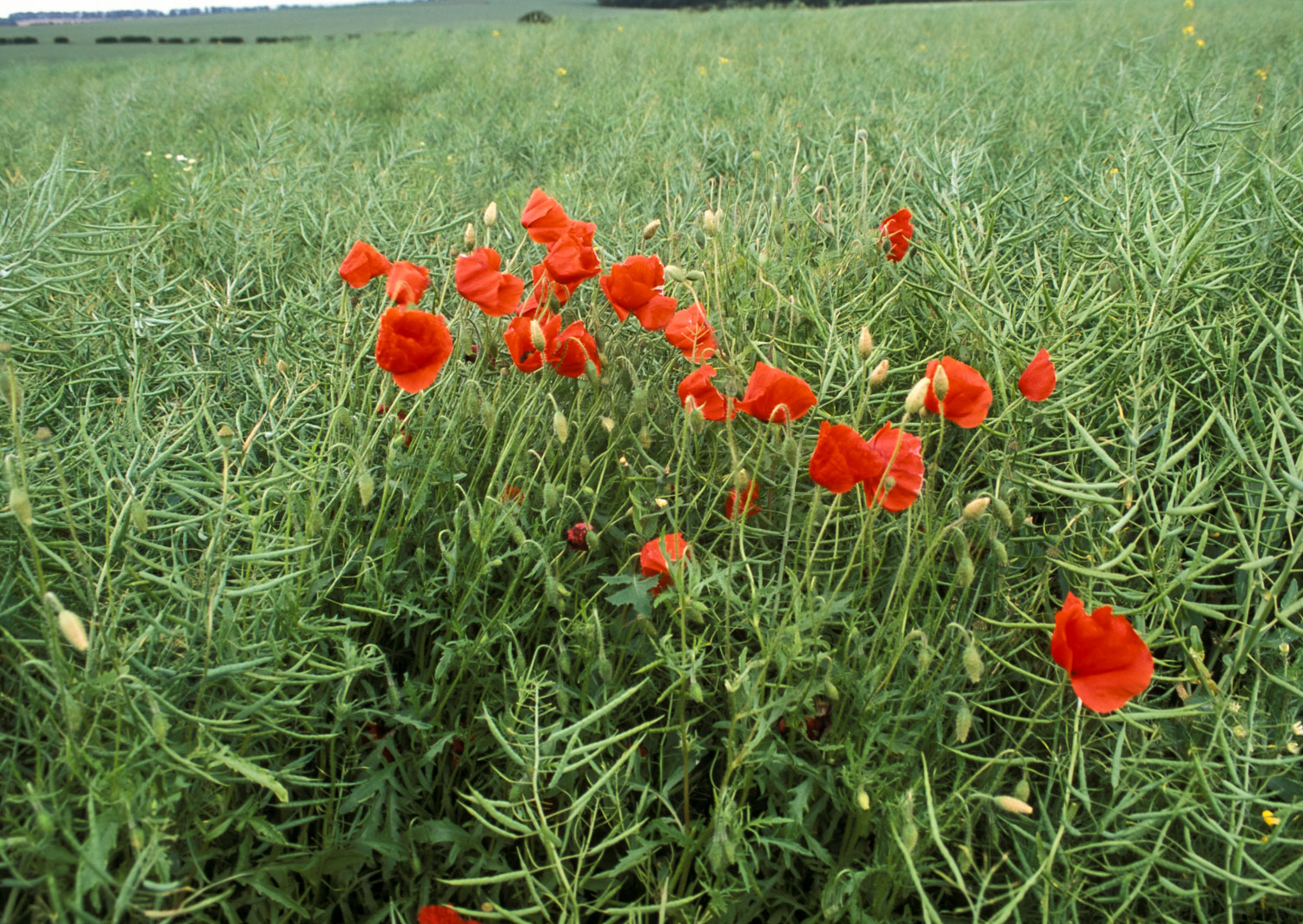Poppy is an annual weed common and problematic in both cereals and oilseed rape.
Poppies in oilseed rape

What is a poppy?
Poppy (Papaver rhoeas) is an annual weed common and problematic in both cereals and oilseed rape. The red flowers, so visible in midsummer are borne on robust, tough plants that makes harvesting very difficult.
One plant can produce 20,000 seeds and the seeds can remain dormant for 100 years in the soil seed bank. Poppies have a similar competitive index to blackgrass and mayweed and can also cause harvest difficulties including blocking of combine sieves.
Sulfonylurea resistance has been confirmed in the UK, therefore resistance management and WRAG guidelines should be considered when targeting this weed if resistance is known or expected. The Corteva Agriscience products described below do not contain sulfonylurea/ALS actives and provide alternative solutions to control resistant poppy within the crop rotation.

Biology
Poppies can grow successfully on many different soil types and are commonly found in the arable cropping areas of England and less so in southern Scotland. Poppy has an annual lifecycle germinating in both autumn and spring, though germination peaks around late September through to November and plants successfully overwinter. Poppies can be particularly problematic in oilseed rape due to the early sowing date and limitations in achieving a stale seedbed before drilling.
Young poppy plants can sometimes be confused with Shepherd’s purse, but the characteristic ‘mitten’ shaped first true leaves of the poppy differentiate the two. Later leaves are hairy, deeply lobed and the upper leaves are sessile (attached to the stem without a stalk). The distinctive red flowers of the poppy can usually be seen from June.
Product Choice
Astrokerb® is a post-emergent contact and residual herbicide containing propyzamide and aminopyralid and can be applied from October 1st to January 31st for the control of grassweeds and broad-leaved weeds, especially poppy in oilseed rape.
Belkar® (picloram and halauxifen methyl) is a post emergence broad-leaved weed contact herbicide that can be applied from September 1st to December 31st and it provides good activity against autumn germinating poppies.
Korvetto® (clopyralid and halauxifen methyl) is a spring applied post emergence broad-leaved weed contact herbicide that controls established or later germinating poppies as well as a range of other broad-leaved weed species.
Astrokerb Herbicide
Astrokerb® is a contact and residual herbicide delivering control of blackgrass, poppy, mayweed and other grass and broad-leaved weeds in winter oilseed rape.
Belkar Herbicide
Belkar® is a post-emergence autumn applied herbicide for superior control of a wide range of broad-leaved weeds in winter oilseed rape.
Korvetto Herbicide
Korvetto® is a selective post-emergence spring applied herbicide for use on winter oilseed rape.